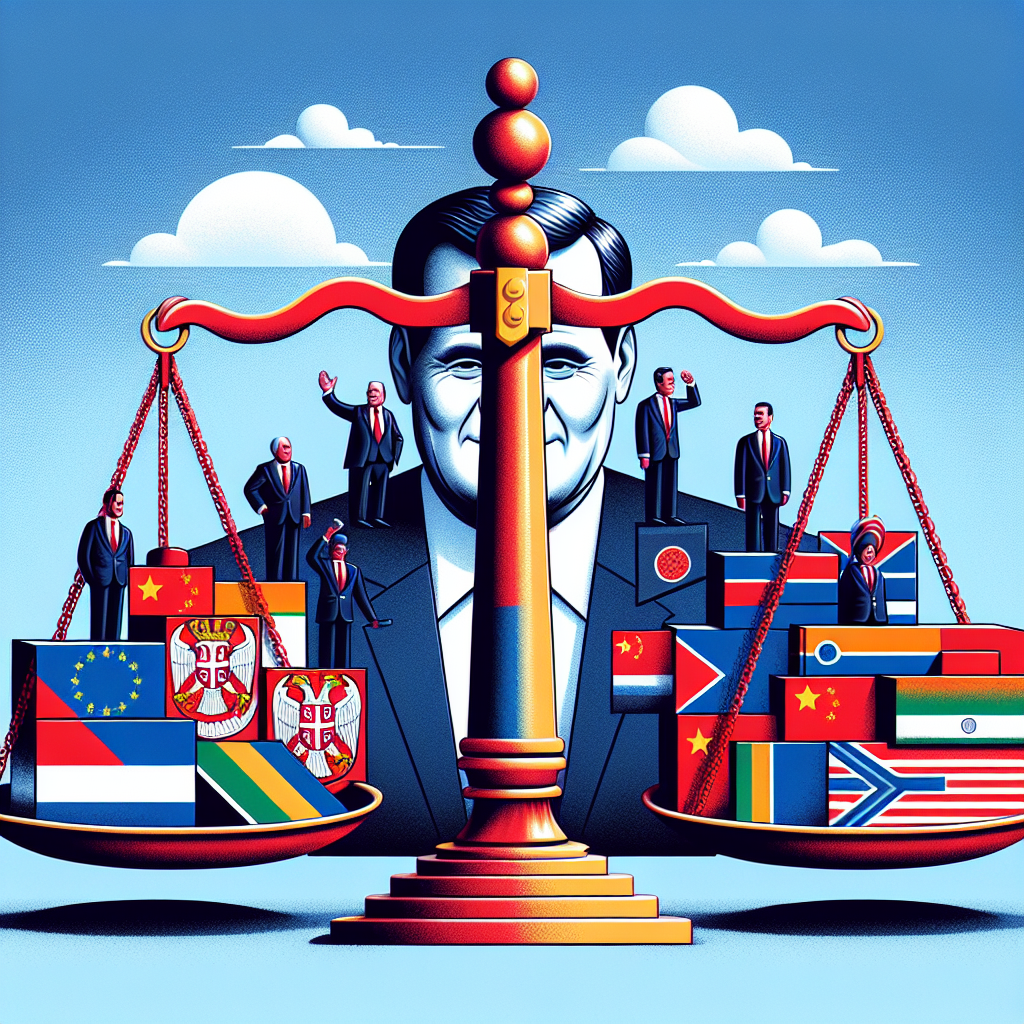Serbia Sees BRICS as a Genuine Alternative to the EU
Serbia Sees BRICS as a Genuine Alternative to the EU

Introduction
In a significant geopolitical shift, Serbia is increasingly viewing the BRICS group—comprising Brazil, Russia, India, China, and South Africa—as a viable alternative to the European Union (EU). This development highlights Serbia’s strategic recalibration in response to evolving global dynamics.
Key Motivations
Serbia’s interest in BRICS is driven by several factors:
- Economic Opportunities: BRICS nations offer vast markets and potential for economic collaboration, which Serbia finds appealing.
- Political Alignment: The political landscape within BRICS aligns more closely with Serbia’s current foreign policy objectives.
- Reduced Dependency: Engaging with BRICS could reduce Serbia’s dependency on the EU, providing more balanced international relations.
Strategic Implications
The shift towards BRICS could have several strategic implications for Serbia:
- Enhanced Trade Relations: Serbia could benefit from increased trade and investment opportunities with BRICS countries.
- Geopolitical Influence: Aligning with BRICS may enhance Serbia’s geopolitical influence and bargaining power on the global stage.
- Diplomatic Flexibility: This move could provide Serbia with greater diplomatic flexibility in international negotiations.
Challenges and Considerations
Despite the potential benefits, Serbia faces challenges in aligning with BRICS:
- Balancing Relations: Serbia must carefully balance its relations with both the EU and BRICS to avoid diplomatic tensions.
- Economic Integration: Integrating with BRICS economies may require significant adjustments in Serbia’s economic policies.
- Political Risks: Aligning with BRICS could expose Serbia to political risks associated with the group’s internal dynamics.
Conclusion
Serbia’s consideration of BRICS as an alternative to the EU marks a pivotal moment in its foreign policy strategy. While the potential for economic growth and increased geopolitical influence is significant, Serbia must navigate the complexities of balancing its international relationships. This strategic pivot underscores the dynamic nature of global alliances and Serbia’s adaptive approach to its role on the world stage.
















